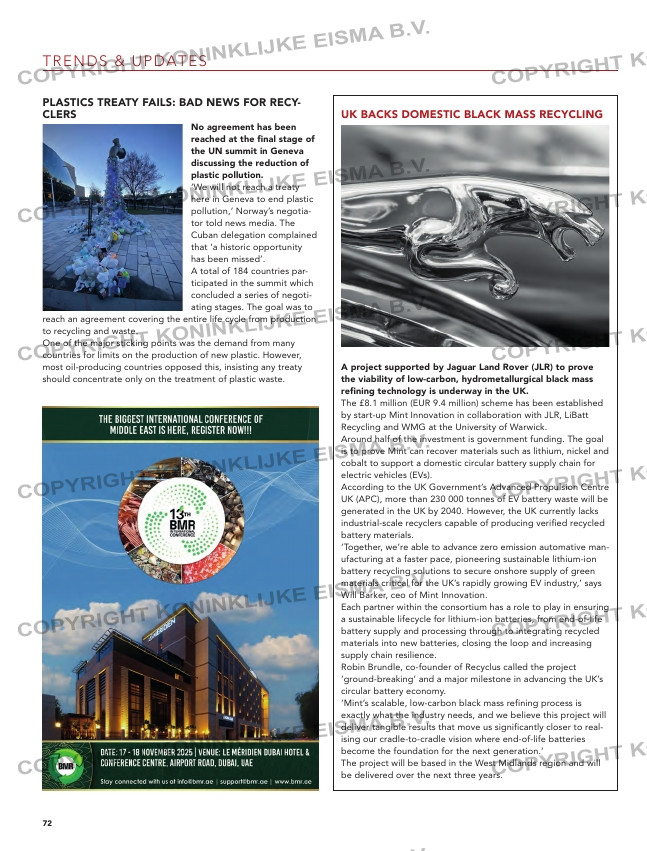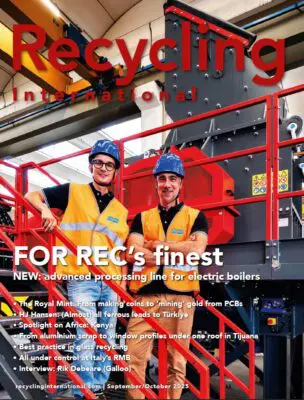72
PLASTICS TREATY FAILS: BAD NEWS FOR RECY-
CLERS
No agreement has been
reached at the final stage of
the UN summit in Geneva
discussing the reduction of
plastic pollution.
‘We will not reach a treaty
here in Geneva to end plastic
pollution,’ Norway’s negotia-
tor told news media. The
Cuban delegation complained
that ‘a historic opportunity
has been missed’.
A total of 184 countries par-
ticipated in the summit which
concluded a series of negoti-
ating stages. The goal was to
reach an agreement covering the entire life cycle from production
to recycling and waste.
One of the major sticking points was the demand from many
countries for limits on the production of new plastic. However,
most oil-producing countries opposed this, insisting any treaty
should concentrate only on the treatment of plastic waste.
UK BACKS DOMESTIC BLACK MASS RECYCLING
A project supported by Jaguar Land Rover (JLR) to prove
the viability of low-carbon, hydrometallurgical black mass
refining technology is underway in the UK.
The £8.1 million (EUR 9.4 million) scheme has been established
by start-up Mint Innovation in collaboration with JLR, LiBatt
Recycling and WMG at the University of Warwick.
Around half of the investment is government funding. The goal
is to prove Mint can recover materials such as lithium, nickel and
cobalt to support a domestic circular battery supply chain for
electric vehicles (EVs).
According to the UK Government’s Advanced Propulsion Centre
UK (APC), more than 230 000 tonnes of EV battery waste will be
generated in the UK by 2040. However, the UK currently lacks
industrial-scale recyclers capable of producing verified recycled
battery materials.
‘Together, we’re able to advance zero emission automative man-
ufacturing at a faster pace, pioneering sustainable lithium-ion
battery recycling solutions to secure onshore supply of green
materials critical for the UK’s rapidly growing EV industry,’ says
Will Barker, ceo of Mint Innovation.
Each partner within the consortium has a role to play in ensuring
a sustainable lifecycle for lithium-ion batteries, from end-of-life
battery supply and processing through to integrating recycled
materials into new batteries, closing the loop and increasing
supply chain resilience.
Robin Brundle, co-founder of Recyclus called the project
‘ground-breaking’ and a major milestone in advancing the UK’s
circular battery economy.
‘Mint’s scalable, low-carbon black mass refining process is
exactly what the industry needs, and we believe this project will
deliver tangible results that move us significantly closer to real-
ising our cradle-to-cradle vision where end-of-life batteries
become the foundation for the next generation.’
The project will be based in the West Midlands region and will
be delivered over the next three years.
TRENDS & UPDATES
68-69-70-71-72_trendsupdatesiiadvert.indd 72 09-09-2025 15:38




